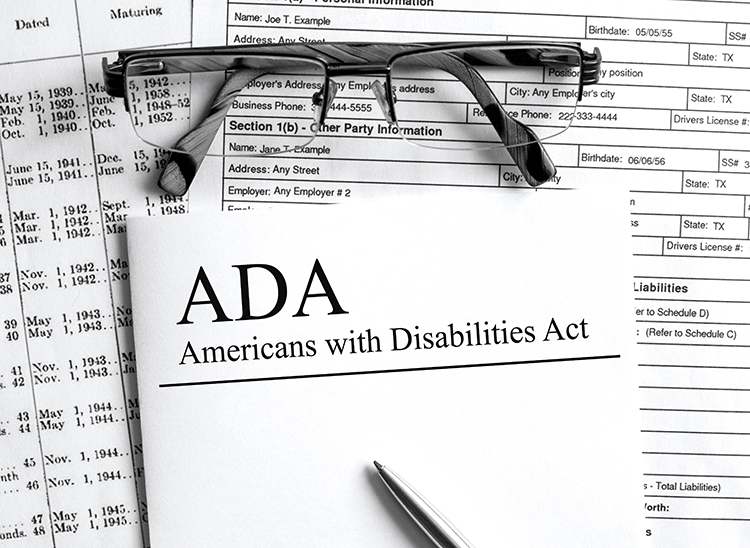Is dismissal bid effort to keep ADA 'gravy train' running? Tester urges SCOTUS to drop her case

At issue in a pending U.S. Supreme Court case is whether a plaintiff has standing to sue Acheson Hotels for failing to provide accessibility information for a Maine property online, even though the plaintiff has no intention of staying there. Image from Shutterstock.
A Florida woman who tests hotel websites for compliance with the Americans With Disabilities Act is seeking to dismiss all of her pending cases, including one pending before the U.S. Supreme Court.
At issue in the pending Supreme Court case is whether plaintiff Deborah Laufer has standing to sue Acheson Hotels for failing to provide accessibility information for a Maine property online, even though she has no intention of staying there.
Laufer’s current lawyers say the Supreme Court should dismiss her case and vacate the ruling in her favor by the 1st U.S. Circuit Court of Appeals at Boston.
Law.com and SCOTUSblog have coverage via How Appealing.
Laufer has multiple sclerosis and uses a wheelchair, according to a signed declaration cited by Law.com.
Writing at the Volokh Conspiracy, Josh Blackman, a professor at the South Texas College of Law in Houston and an ABA Journal contributor, suggested that the requested dismissal is part of an effort to avoid a negative standing ruling against testers.
“Let me put my cynic hat on for a moment,” Blackman wrote. “Laufer has filed hundreds of these lawsuits, as have other plaintiffs nationwide. If the Supreme Court rules that Laufer lacks standing, [then] favorable circuit precedents are wiped out, and this gravy train would be derailed.”
Lawyers for Laufer notified the Supreme Court that she is dropping the case against Acheson Hotels, after a lawyer who has handled other ADA cases for her was suspended from practice in Maryland federal court for six months in a July 5 order.
The lawyer is Tristan W. Gillespie. He has filed more than 600 tester suits, mostly on behalf of Laufer and another plaintiff. The suits sought corrective action and payment of a $10,000 attorney fee, according to June 30 findings by an appointed three-judge disciplinary panel.
Gillespie used “boilerplate complaints” with the same typos and misspellings and claimed that it took anywhere from two to four hours to draft the pleadings, according to the findings. In one instance, he filed 16 ADA tester complaints in a day.
Gillespie conceded at a hearing that he falsely represented in some fee petitions that he took more than two hours to draft a complaint. After he learned of the investigation, he dismissed more than 100 tester cases without consulting his clients.
“Although Ms. Laufer has not engaged in any improper conduct and continues to believe that her claims against Acheson and other hotels are meritorious, she recognizes that the allegations of misconduct against Mr. Gillespie could distract from the merits of her ADA claims and everything she has sought to achieve for persons with disabilities like herself,” wrote Laufer’s new lawyers in their brief filed July 24.
Gillespie was local counsel for Thomas B. Bacon, who had represented Laufer in the 1st Circuit and in arguing that the Supreme Court should not grant certiorari. Laufer is now represented by lawyers with the Institute for Constitutional Advocacy and Protection at the Georgetown University Law Center.
According to an Acheson Hotels brief filed July 28, “The sanctions order reveals, among other things, that Laufer’s [now-former] lawyers defrauded scores of hotels by lying to them during settlement negotiations; defrauded scores of courts by lying in fee petitions; and funneled hundreds of thousands of dollars to an ‘investigator’ who did virtually no work and who happens to be the father of Laufer’s granddaughter.”
Laufer acknowledged the connection to the investigator in a signed declaration submitted to the Supreme Court but said the investigator never gave her money or anything else of value, according to Law.com.
Instead, Laufer said, she saw her website testing as an opportunity to help people with disabilities to travel.
“Serving as an ADA plaintiff helped get me out of my depression because it allowed me to help myself and other people,” Laufer said.



